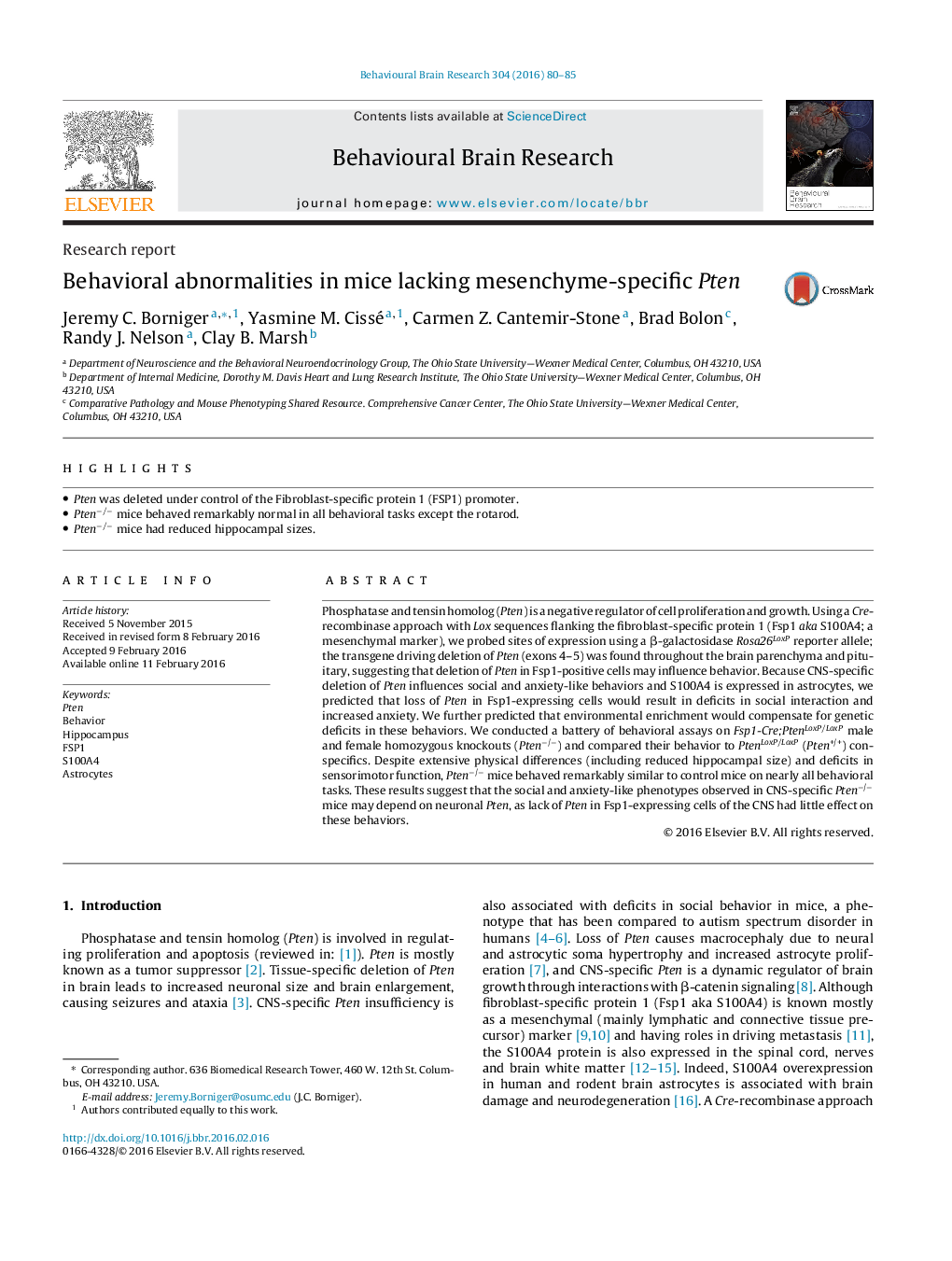| کد مقاله | کد نشریه | سال انتشار | مقاله انگلیسی | نسخه تمام متن |
|---|---|---|---|---|
| 4312184 | 1612929 | 2016 | 6 صفحه PDF | دانلود رایگان |
• Pten was deleted under control of the Fibroblast-specific protein 1 (FSP1) promoter.
• Pten−/− mice behaved remarkably normal in all behavioral tasks except the rotarod.
• Pten−/− mice had reduced hippocampal sizes.
Phosphatase and tensin homolog (Pten) is a negative regulator of cell proliferation and growth. Using a Cre-recombinase approach with Lox sequences flanking the fibroblast-specific protein 1 (Fsp1 aka S100A4; a mesenchymal marker), we probed sites of expression using a β-galactosidase Rosa26LoxP reporter allele; the transgene driving deletion of Pten (exons 4–5) was found throughout the brain parenchyma and pituitary, suggesting that deletion of Pten in Fsp1-positive cells may influence behavior. Because CNS-specific deletion of Pten influences social and anxiety-like behaviors and S100A4 is expressed in astrocytes, we predicted that loss of Pten in Fsp1-expressing cells would result in deficits in social interaction and increased anxiety. We further predicted that environmental enrichment would compensate for genetic deficits in these behaviors. We conducted a battery of behavioral assays on Fsp1-Cre;PtenLoxP/LoxP male and female homozygous knockouts (Pten−/−) and compared their behavior to PtenLoxP/LoxP (Pten+/+) conspecifics. Despite extensive physical differences (including reduced hippocampal size) and deficits in sensorimotor function, Pten−/− mice behaved remarkably similar to control mice on nearly all behavioral tasks. These results suggest that the social and anxiety-like phenotypes observed in CNS-specific Pten−/− mice may depend on neuronal Pten, as lack of Pten in Fsp1-expressing cells of the CNS had little effect on these behaviors.
Journal: Behavioural Brain Research - Volume 304, 1 May 2016, Pages 80–85
